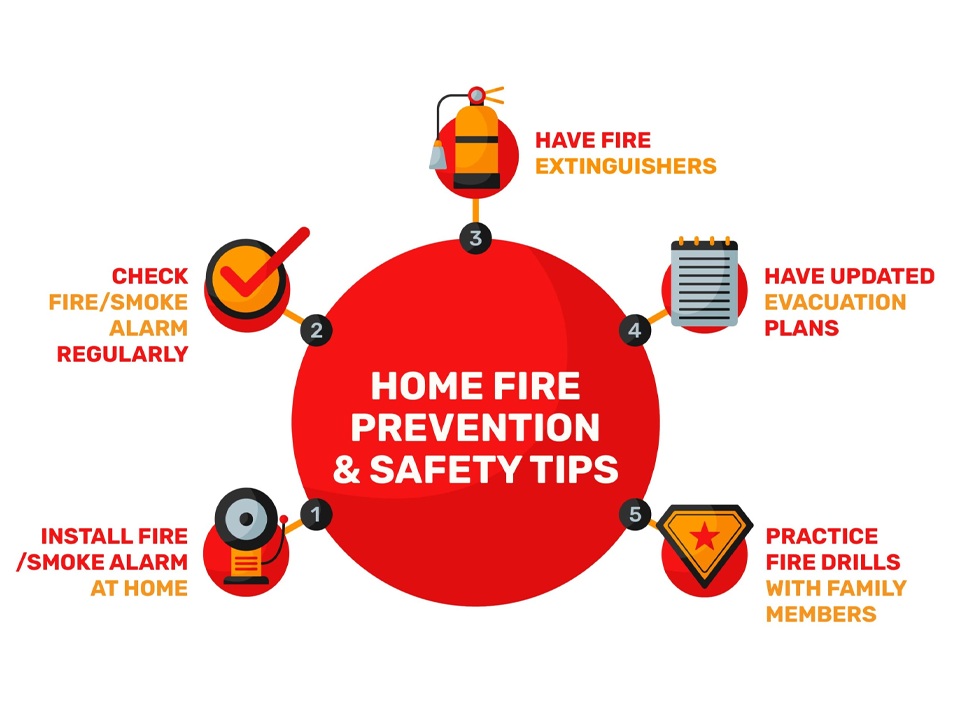Tips for Fire Safety
- Install smoke alarms on every level of your home, inside bedrooms and outside sleeping areas.
- Test smoke alarms every month. If they’re not working, change the batteries.
- Talk with all family members about a fire escape plan and practice the plan twice a year.
- If a fire occurs in your home, GET OUT, STAY OUT and CALL FOR HELP. Never go back inside for anything or anyone.



